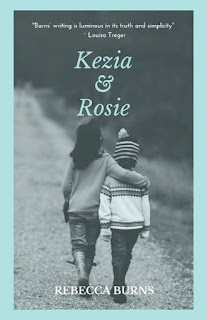Kathy Pimlott was born and raised in Nottingham but has spent the last 45+ years living and working in Covent Garden, specifically Seven Dials, home of the broadsheet and the ballad. Her debut full collection, the small manoeuvres, was published by Verve Poetry Press in April 2022. She has two pamphlets with The Emma Press, Elastic Glue (2019) and Goose Fair Night (2016), and her poems are published widely in magazines and anthologies. Her poem ‘Closeups in Lockdown’ was one of just 20 chosen for inclusion in the Poetry Archive’s Now! Wordview 2020 Collection. Kathy has been a social worker and community activist, worked on a political and financial risk journal, in arts television and artist development. She currently earns her living as the administrator of a community-led charitable trust.
About the small manoeuvres
In this, her first full collection, Pimlott slips her arm through ours and draws us in with her deceptively easy and intimate address, separating out the threads that make us – history, class, education, family, work, friendships – to examine 'the small manoeuvres that trundle us over the drop and on.' She weaves back and forwards through a lifetime with a mordant humour laced with tenderness. Fine-tuned to the oddness and beauty of the ordinary, she celebrates them with a relish for the deliciousness of language. There are mice, possible lions, natty Soho dogs, poison, georgette and a mermaid, apples, temples and gentrification, sticky carpets, vegan Bratwurst and aqueducts – something for everyone in this unsettling dance through time, characters and place.
From the small manoeuvres, by Kathy Pimlott
Too often now I sway into the night,
that cosy winter dark between tea and
the turning out of pubs and cinemas,
a late traveller fogging a rattling bus.
See me on the upper deck with the dogs
and other coughers, taken up with smoking
in that sophisticated way, dragon-nostrils.
I shouldn’t keep going back, am already yellow
beyond scrubbing. These comfortable excursions
just won’t do while all the while life howls
for attention. Last year a clever man I knew
a bit courted a death he didn’t believe in.
Visiting, face it, out of a desire to be blessed,
by happenstance I was invited into the scan,
to witness a death sentence, 90% sure, but, ah,
that golden 10. First question: can I still
have a drink? He died, swollen, in a hard clutch.
And now this other man, mine, heads that way too.
But anyhow, look, here comes the whipsmart clippie
machine grazing her hip, its crank and buttons
the bell: one for stop, two sharp dings for go.
If I don’t tell you, how will you ever know about
that bronco ride of side benches, the fear of slipping
right off the bus as the driver speeds, skips stops, reckless
on corners, to the end of his shift? It’s late, so join me,
grip the pole, lean out into those bright, melancholy lights.
The Grand Union Canal Adventure
We three old girls, fractured
by the usual losses, aren’t mended
Japanese-style with precious seams
that make each fissure sing,
but rivetted: serviceable, not art.
To prove our mettle, we choose
to chug along the old Grand Union,
moor by fields of roosting geese
to sway in darkness on the water’s
shallow, dreamless shift.
Forty feet above the Ouse, I’m left.
The others go below to show me
I can, despite my doubts, skipper us
along the strait way of the aqueduct,
not falter, step back into empty air
On a narrow boat there’s no choice
but to make the small manoeuvres
that trundle us over the drop and on,
now and again to know the satisfaction
Shins bruised, knuckles scraped raw,
we tie up, step ashore to climb the hill
up to the Peace Pagoda, so golden,
so unlikely, outside Milton Keynes.

















